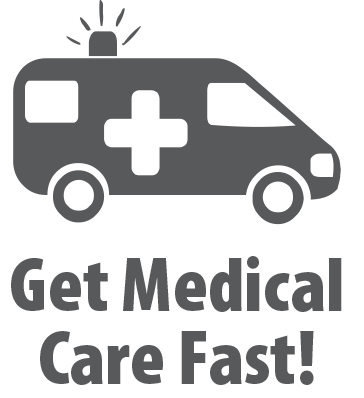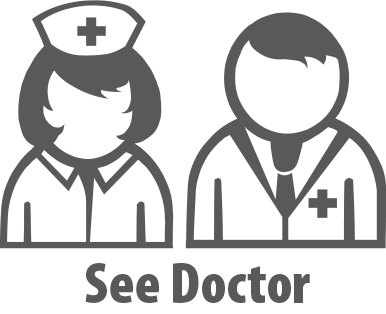Women's Health
Fatigue & Autoimmune Diseases
Fatigue is being very tired, weary, and lacking energy. Often, it is a symptom of other health problems.
Signs & Symptoms
• Feeling drained of energy.
• Feeling exhausted.
• Having a very hard time doing normal activities.
• Having low motivation.
• Feeling inadequate.
• Having little desire for sex.
Causes
Causes that need medical care include anemia, depression, heart disease, and chronic fatigue syndrome (the fatigue lasts at least 6 months). Fatigue is also a common symptom of autoimmune diseases. These include diabetes, low thyroid, multiple sclerosis, and lupus (the systemic type).
Other physical causes include lack of leisure activities or lack of sleep; poor diet; side effects from allergies, chemical sensitivities or drug or alcohol addiction; being in hot, humid conditions; and prolonged effects of the flu or a bad cold.
Possible emotional causes are burnout, boredom, and a major life change (e.g., divorce, retirement, etc.).
Treatment
Treatment for fatigue depends on the cause(s). Keep track of any other symptoms that occur with the fatigue. This helps find out both physical and emotional causes.
Questions to Ask
Question
01
With fatigue, are any “Signs & Symptoms–For a Heart Attack” or any of the stroke signs present?

Call 911
Get medical care without delay. If symptoms are life threatening go to the ER or call 9-1-1. Don’t call 9-1-1 or use the ER if symptoms do not threaten life. Ask your doctor ahead of time where you should go for a problem that needs prompt care, but not emergency care.
x
Question
02
With fatigue, are you lightheaded or do you feel like you are going to faint?

Get medical care without delay. If symptoms are life threatening go to the ER or call 9-1-1. Don’t call 9-1-1 or use the ER if symptoms do not threaten life. Ask your doctor ahead of time where you should go for a problem that needs prompt care, but not emergency care.
x
Question
03
With fatigue, do you also have these signs of hepatitis?
• The whites of your eyes and/or your skin looks yellow (jaundice).
• Dark urine. Vomiting and nausea.
• Loss of appetite and/or weight loss. Pain in the abdomen.
• Fever.
• Stools are pale and clay-colored.

You should be seen by your doctor for medical advice. Contact your doctor or health care provider to find out how soon you should be seen.
x
Question
04
With fatigue, do you have other signs of multiple sclerosis?
• Blurred vision, double vision, or the loss of vision in one eye.
• Bladder problems (infections, incontinence, urinating often).
• Feelings of pins and needles in the limbs. Muscle spasms; poor coordination.
• Emotional mood swings, irritability, depression, anxiety, euphoria.

You should be seen by your doctor for medical advice. Contact your doctor or health care provider to find out how soon you should be seen.
x
Question
05
With fatigue & weakness, do any of these signs of diabetes occur?
• Passing urine often. Abnormally increased thirst and hunger. Rapid weight loss or excessive weight gain.
• Extreme irritability or drowsiness.
• Nausea and vomiting.
• Itching and/or skin infections that don’t clear up easily. Tingling, numbness, or pain in the arms and legs. Blurred vision.

You should be seen by your doctor for medical advice. Contact your doctor or health care provider to find out how soon you should be seen.
x
Question
06
With severe fatigue, do you have signs of mononucleosis?
• Fever.
• Sore throat.
• Swollen lymph glands in the neck area.
• Loss of appetite.
• Pain in the upper left abdomen.

You should be seen by your doctor for medical advice. Contact your doctor or health care provider to find out how soon you should be seen.
x
Question
07
With fatigue, do you have signs of hypothyroidism?
• Hair loss and dry, thick, flaky skin.
• Decreased tolerance to cold temperatures and numbness or tingling in the hands.
• Unexplained weight gain. Constipation.
• Sleepiness; feeling mentally sluggish.
• Longer and heavier menstrual periods.

You should be seen by your doctor for medical advice. Contact your doctor or health care provider to find out how soon you should be seen.
x
Question
08
With fatigue, do you have any of these signs & symptoms of lupus?
• Joint pain lasts more than 3 months. Fingers get pale, numb, or uncomfortable in the cold.
• Mouth sores last more than 2 weeks. Blood tests show low blood count, low white-cell count, or low platelet count.
• A “butterfly-shaped” rash on your cheeks lasts more than 1 month. Skin rash (raised patches with scaling) after being in the sun. Pain lasts more than 2 days when taking deep breaths.

You should be seen by your doctor for medical advice. Contact your doctor or health care provider to find out how soon you should be seen.
x
Question
09
With fatigue and weakness, do you have signs and symptoms of anemia?

You should be seen by your doctor for medical advice. Contact your doctor or health care provider to find out how soon you should be seen.
x
Question
10
With fatigue, do you have other signs and symptoms of depression?

You should be seen by your doctor for medical advice. Contact your doctor or health care provider to find out how soon you should be seen.
x
Question
11
Has the fatigue lasted 6 or more months in a row?

You should be seen by your doctor for medical advice. Contact your doctor or health care provider to find out how soon you should be seen.
x
Question
12
With daytime fatigue, has someone else told you that you snore loudly and have episodes where your breathing has stopped 10 or more seconds at a time when you sleep?

You should be seen by your doctor for medical advice. Contact your doctor or health care provider to find out how soon you should be seen.
x
Question
13
With extreme fatigue, do you have signs of fibromyalgia?
• Muscle pain for more than 2 weeks.
• Flu-like symptoms (general ill feeling, fever, etc.).
• Insomnia.
• Mental fogginess.
• Headache.

You should be seen by your doctor for medical advice. Contact your doctor or health care provider to find out how soon you should be seen.
x
Question
14
Do any of these conditions describe the fatigue?
• It occurred for no apparent reason, lasted for more than 2 weeks, and has kept you from doing your usual activities.
• It started after taking medicine.
• It hits hard right before or after each menstrual period.
• Pregnancy is possible.

You should be seen by your doctor for medical advice. Contact your doctor or health care provider to find out how soon you should be seen.
x
Question
15
Did the fatigue come with the onset of menopause or follow menopause?

Call your doctor or health care provider and state the problem. He or she can decide what you should do.
x
Self-Care / Prevention
If fatigue is due to a medical condition, follow your doctor’s or health care provider’s guidelines for rest, diet, medication, etc.
• Get regular physical activity. Exercise can give you more energy, especially if you sit all day at work. Exercise can calm you, too.
• Cool off. Working or playing in hot weather can drag you down. Rest in a cool, dry place as often as you can. Drink plenty of water.
• Rest and relax. Get a good night’s sleep. Relax during the day if you can, too. Practice deep breathing or meditation.
• Eat well. Eating too much and “crash dieting” are both hard on your body. Don’t skip breakfast. Limit high-fat and/or rich, sugary foods. Eat whole-grain breads and cereals and fruits and vegetables every day. Have 5 to 6 light meals a day, instead of 3 large ones. Take vitamin and mineral supplements, as advised by your doctor.
• Change your routine. Do something interesting each day. If you do too much, plan for some quiet time.
• Lighten your work load. Assign tasks to others when you can. Ask for help when you need it.
• Do something for yourself. Plan time to do things that meet only your needs.
• Avoid too much caffeine and alcohol. Don’t use illegal drugs. These trigger fatigue.
Resources
Chronic Fatigue Syndrome & Fibromyalgia Information Exchange Forum (Co-Cure)

Download an offline pdf file.
RELATED ARTICLES
<
>
2021 © American Institute for Preventive Medicine - All Rights Reserved. Disclaimer | www.HealthyLife.com








